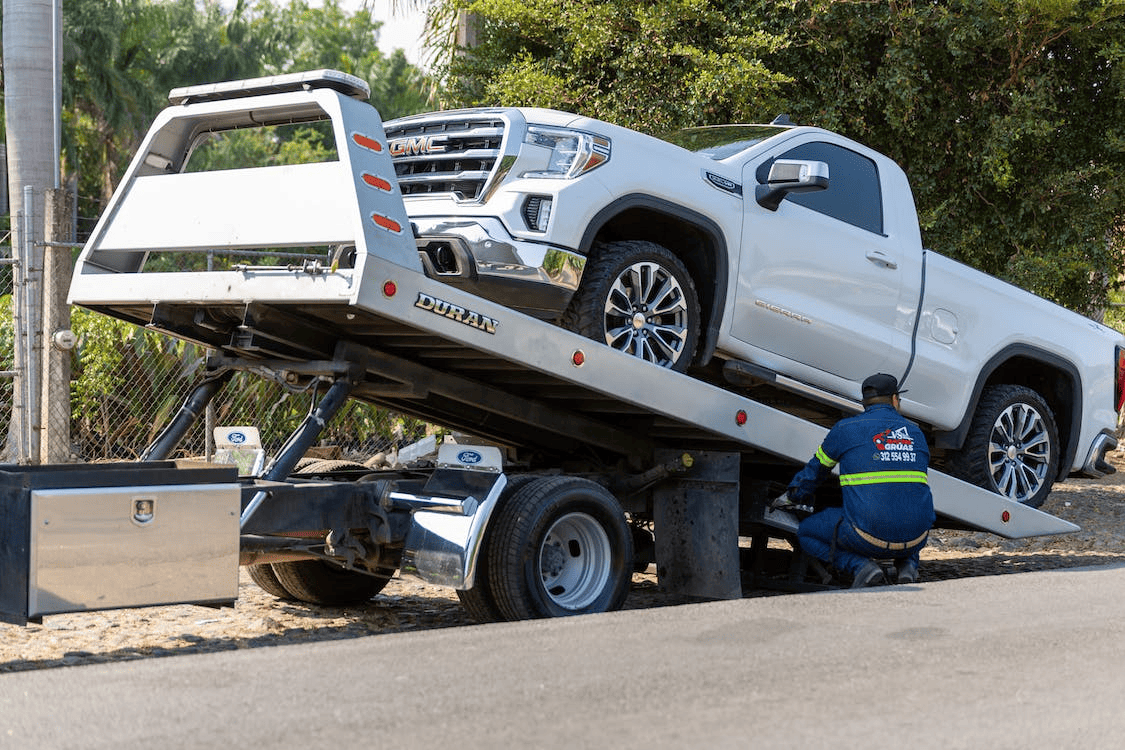
Car accidents are often chaotic and stressful experiences. If your car is undrivable after a major collision, it may be towed from the accident scene. This can lead to a multitude of questions and concerns. What steps should you take? Who covers the towing and storage fees? Does your insurance handle these costs? In this guide, we will navigate the complexities of what to do when your car is towed after an accident, addressing key questions and providing valuable insights.
Understanding the Basics
Why Was Your Car Towed?
After a major car accident, it’s common for tow trucks to be dispatched to clear the accident scene promptly. If your car is deemed undrivable or poses a safety hazard, it will likely be towed to ensure the smooth flow of traffic and public safety.
Where Will Your Car Go?
After an accident, your towed car’s destination depends on the circumstances. If a police officer is involved, they might call a tow truck, but you can choose if injuries are minor. Typically, towed cars go to a tow yard and auto body shop, especially if you’re hospitalized.
Police provide the yard’s location; otherwise, you can specify a destination. Ensure your car doesn’t block others, and discuss costs with the tow truck driver. Beware of towing scams; some companies may exploit accidents. Consider hiring a personal injury attorney to review contracts. If scammed, report it to authorities.
When Can You Expect Your Car Back?
For the swift return of your towed car, act promptly to avoid daily storage fees at the salvage yard. Immediately notify the at-fault driver’s insurance company and request a prompt damage assessment. Retrieve your car as soon as the evaluation is complete if the other insurance company delays, involve your insurance provider for assistance. In cases involving a potential car defect, preserving physical evidence with the guidance of your accident injury lawyer is crucial for a possible product liability lawsuit.
Who Pays for Towing and Storage Fees?
Determining responsibility for towing and storage fees can be complex. In many cases, the at-fault driver’s insurance should cover these costs. However, if the at-fault driver doesn’t have insurance or is underinsured, your insurance policy may come into play. In these situations, seeking legal advice is often a wise move to protect your rights.
Does Car Insurance Cover Towing and Storage Fees?
Car insurance coverage for towing and storage fees after an accident varies based on your policy. Collision coverage typically covers towing from the accident scene and may include storage fees.
Comprehensive coverage, addressing non-collision incidents, might cover these fees for specific situations. Policy specifics, coverage limits, and deductibles play a crucial role, and it’s essential to review your policy or contact your provider for clarity.
If you lack collision coverage, roadside assistance or the at-fault driver’s insurance may provide alternatives. Legal guidance is advisable if there are challenges with insurance coverage, ensuring fair treatment after an accident.
Insurance Company Responsibilities
Your insurance company may often cover impound and storage fees, especially if the accident was not your fault. However, it’s crucial to communicate promptly with your insurance provider and understand the extent of your coverage.
What Is the Cost of Towing Services?
Towing fees after an accident can quickly accumulate. Consent to these fees is often bypassed in urgent situations, like blocking traffic. Retrieving your undrivable vehicle from the salvage yard incurs daily storage fees, potentially leading to multiple charges.
On average, hiring a tow truck in the U.S. costs between $75 and $125. Additional fees include mileage fees ranging from $2 to $4 per mile, with larger vehicles possibly reaching $7 per mile. Other factors influencing costs include hookup fees, distinctions between local and long-distance towing, vehicle type, time of day, and difficulty loading the vehicle.
What if the At-Fault Driver Doesn’t Have Insurance?
Unfortunately, not every driver on the road is adequately insured. It can complicate matters if the at-fault driver doesn’t have insurance or their coverage is insufficient. The motorist lacking insurance might be subjected to fines, license suspension, and potential imprisonment. Additionally, they will be responsible for covering their damages. In such cases, consulting with legal professionals becomes even more critical to explore compensation and financial recovery avenues.
Navigating the Process
Immediate Steps After the Accident
Ensure everyone’s safety.
Contact law enforcement.
Exchange information with the other party involved.
If safe, take photos of the accident scene.
Communicating with the Tow Company
Once your car is towed, contacting the towing companies is vital. Obtain information on where your vehicle is being stored, the fees involved, and any additional details you may need for insurance.
Understanding Towing and Storage Fees
Towing and storage fees can vary, so it’s essential to understand the costs associated with retrieving your vehicle. This may include daily storage fees, towing fees, and other potential charges.
Dealing with Insurance Companies
Car owner needs to work closely with their insurance company throughout the process. To ensure a smooth claims process, provide them with all the necessary information and documentation, including the towing and storage receipts.
Legal Considerations
Seeking Legal Guidance
If the at-fault driver is uncooperative or if you encounter difficulties with insurance coverage, seeking legal guidance is advisable. A Nevada-based law firm can provide insights into the specific laws and regulations governing such situations.
Understanding Nevada Law
Each state has regulations regarding towing, storage, and insurance coverage after an accident. Understanding Nevada law is crucial to navigating these complexities effectively.
Recovering Additional Costs
You may sometimes incur additional costs, such as rental car expenses, medical bills, or lost wages. Understanding your rights and seeking reimbursement for these costs is essential to the post-accident process.

Contact BLG for Legal Help
Experiencing a major car accident is undoubtedly a challenging situation, and having your car towed only adds to the stress. However, by understanding the steps to take and seeking legal guidance when needed, you can navigate the complexities and ensure a smoother recovery process. Remember to communicate effectively with the towing company and your insurance provider, and don’t hesitate to consult with legal professionals if needed. With the right approach, you can minimize the financial and emotional impact of having your car towed after an accident.
If you find yourself grappling with legal complexities after your car has been towed following an accident, don’t hesitate to contact the experts at BLG Law Firm. Our experienced team is ready to provide the guidance and support you need during this challenging time. Your rights and financial recovery matter, and BLG ensures you navigate the legal landscape effectively.
Contact us now for a free consultation.




